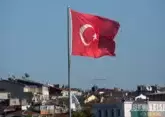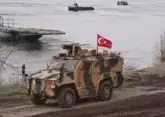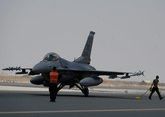Is Turkey still a reliable ally? After repeated endorsements by the government of Turkish President Recep Tayyip Erdogan of policies inimical to U.S. interests, the answer seems to be not really. As Gatestone Institute writes in the article Turkey: Still a U.S. Ally?, Erdogan recently announced he will seek United Nations support to annulPresident Trump's recognition of Jerusalem as Israel's capital.In addition, the Turkish Ministry of Justice has issued warrants for the arrest of two American Turkey specialists, in effect placing a bounty of $800,000 on their heads.
Additionally, there is the somewhat comical furor in Turkey over the adoption by Turkish entrepreneurs of the American "Black Friday" sales concept. Several Turkish businesses, which had attempted to increase sales by borrowing the U.S. "Black Friday" market lure, were attacked by devout Muslims who accused store owners of disrespecting Islam's day of prayer. The perceived insult to Islam's Friday Prayer obligation is just another example of a widening antipathy towards the U.S.
While the misunderstanding by Turks over "Black Friday," will likely fade quickly, the diplomatic damage brought on by the early October arrest by Turkey's police of a Turkish employee at the U.S. Consulate in Istanbul allegedly for espionage is likely to be more long-lasting. The arrest of the U.S Consulate's employee precipitated the U.S. Ambassador's suspension on October 8, of all non-immigrant U.S. visas for Turkish citizens. The incident underscores how bilateral relations have plummeted since Turkey's President Recep Tayyip Erdogan first came to power.

Shortly after Erdogan was elected in 2002, Turkey appeared to start turning away from its U.S. alliance when it refused to grant permission for U.S. troops to cross Turkish territory into northern Iraq. Turkey's parliament, the Grand National Assembly, voted down the request. Erdogan seems now to be focusing on regional affairs rather than on Turkey's traditional ties to the United States and Europe. Since Erdogan came to power, Turkey has increased its economic and diplomatic ties to Arab states.
After the failed July 15, 2016 coup against Erdogan, he exploited anti-Western sentiment among the Turks by permitting Turkish media to publish articles that accused U.S. General John Campbell, former Commander of NATO forces in Afghanistan, of complicity in the abortive attempted coup. Suleyman Soylu, the AKP's Deputy Chairman, also accused the CIA of being involved. Erdogan further demanded that the U.S. extradite from Pennsylvania Fethullah Gülen, leader of a Turkish opposition movement, and the person Erdogan claimed had instigated the attempted coup.
In the Syrian issue, Turkey's position initially coincided with the position of the regional Sunni states, but then Ankara's position has changed.

In March 2017, Turkey began curbing the terrorist networks it had allowed into its territory. Only then did Turkey decide to cooperate with U.S. efforts to suppress ISIS. The Turks, however, recoiled at the Kurdish ethnicity of the U.S.-assistedanti-ISIS Syrian Democratic Force (SDF).
Turkey is wary of any armed force of Kurds; it evidently fears that if Syria's Kurds are able to carve out an autonomous zone for themselves, it will inflamenationalism among Turkey's millions of Kurds. The Turks view ethnic-Kurd fighters in Syria as an extension of the Kurdish Worker Party (PKK) which has been fighting the Turkish government for decades.

The number of instances where Turkey and U.S. interests now clash, and the accumulated ill will that these disagreements are begetting, suggests that Turkey is no longer a dependable ally of the United States.
But what of NATO? Is Turkey a reliable NATO partner? Here the picture is more mixed. Turkey of late, with the purchase of two batteries of the Russian S-400 air defense system, appears to have taken a big step away from the NATO alliance. Nevertheless, Turkey's continued membership in NATO has its advantages for both parties. Turkey has the second largest standing army in NATO, after the United States. U.S. aircraft are permitted to use bases in Turkey to mount bombing runs on Mideast-based terrorists. Turkey's military complex at Incirlik houses an estimated 90 B61 nuclear gravity bombs. Should Turkey's incipient romance with Russia turn sour, as their historic hostility toward each other might suggest, then Turkey's large ground force, forward deployed nuclear devices, and sophisticated signals intelligence facilities would prove invaluable to NATO as well as to Turkey. Furthermore, should Iran continue its regional march to hegemony, Turkey would prove a worthy rival. Although Turkey under Erdogan may not be a fully committed member of NATO, Turkey in NATO -- at the moment anyhow -- is probably still better than a Turkey out of NATO.










